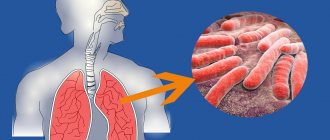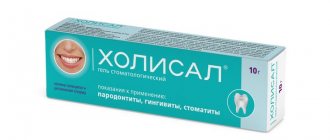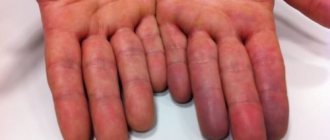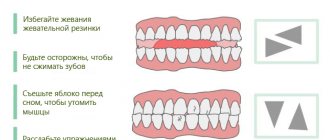What does the taste of blood in your mouth mean?
The appearance of blood in the mouth or its taste is a common phenomenon that many people experience. Sometimes it is associated with trauma, and often it can cause serious distress. The metallic taste is due to the fact that the hemoglobin component of the blood contains one atom of iron. Hemoglobin molecules are bound to a central iron ion.
During intense exercise during exercise, some of the excess hemoglobin released from leaking red blood cells in the lungs is transported through the bronchi into the mouth. Once in the mouth, iron molecules come into contact with iron-sensing receptors on the tongue. These receptors then transmit a message to the brain, which is then experienced in the mouth as a metallic taste.
In the morning, after sleep
The appearance of blood in the mouth in the morning can be the cause of an injury in the mouth, the consequences of smoking, which has affected the lungs. Pay attention to the color and texture of the blood. It may be bright red, frothy, pink, or mucus-laced.
The cause of the taste of blood in the mouth may be increased blood pressure due to smoking
If blood appears during a morning cough, it is always accompanied by mucus. This sign indicates problems with the lungs or respiratory tract. Morning cough is accompanied by other symptoms: chest pain, shortness of breath.
Smoking affects the condition of the respiratory system, damaging tissues and blood vessels that begin to bleed.
The presence of metal crowns contributes to the appearance of a blood taste, especially after waking up. Nighttime injuries to the mucous membrane and tongue often cause the appearance of a specific taste.
After cough
The efforts made by a person, especially with a dry cough, lead to damage to small blood vessels. The blood mixes with bronchial secretions and enters the oral area.
After running
The taste of blood in the mouth after running is caused by high-intensity physical activity. At the same time, the heart rate increases and blood pressure rises. The heart rate also increases as the heart pumps more oxygen-rich blood to the muscles.
During inhalation, oxygen passes through the respiratory system until it reaches the pulmonary alveoli, around which there are capillaries. They are very thin and porous, and in cases of high blood pressure can break, allowing some of the blood to reach the surface of the alveoli.
The harder a person trains, the faster the breathing becomes. The smell and taste of iron disappears during exhalation, which is what causes the taste of blood after a run.
After meal
The taste of blood after eating occurs in those people who suffer from constipation or gastrointestinal problems.
Pathology also occurs in the case of:
- bloating;
- inflammation of the esophagus or esophagitis;
- swelling of the gastric mucosa or gastritis.
Causes of morning bleeding
There may be several reasons that could cause excessive bleeding from the mouth in the morning. Diseases that can cause a similar condition in the morning:
- Acute inflammation of the adenoids. In this state, the blood is simply coughed up. With a chronic inflammatory process, periodic bleeding also becomes a common symptom.
- Severe intoxication of the body with a number of toxic substances. In this condition, bleeding can come from both the respiratory system and the gastrointestinal tract.
- Various chronic inflammatory processes in the nasal cavity can lead to drying out of the capillaries, their fragility and the appearance of bleeding in the oral cavity in the morning.
- Dental problems, especially gingivitis. The disease develops due to the lack of thorough oral hygiene, which leads to the development of pathogenic microflora in the mouth. This provokes the formation of characteristic small ulcers on the tongue and oral mucosa.
A frequent companion to gingivitis is bleeding gums.
Important! Only a thorough diagnosis can indicate to the doctor the further selection of the correct therapy. That is why, at the first case of bleeding, you should immediately contact a specialist and carry out a number of necessary diagnostic measures. Self-medicating in such a condition is life-threatening.
Features of the problem
Women are much more likely than men to suffer from a metallic taste in the mouth. This is due to the characteristics of the female body and hormonal changes.
In men
The appearance of a metallic taste in the mouth in men often indicates kidney disease, liver disease, the appearance of a hidden infection or a sexually transmitted infection. Often this taste occurs in experienced smokers or those who are addicted to alcohol.
It may also be a sign of a bacterial or parasitic infection. Blood diseases, including anemia caused by iron deficiency, should not be ruled out.
Among women
The taste of blood in the mouth (the reasons for women are purely individual) is explained by the peculiarities of metabolic processes and hormonal levels. Before menstruation, the composition of the microflora changes, resulting in a metallic taste.
This feeling normalizes at the beginning or after the end of menstrual bleeding. Often the taste of iron is felt by women who often use oral contraceptives.
In pregnant women
Often in pregnant women, not only taste preferences and an exacerbation of the sense of smell are disrupted, but also a metallic taste appears in the mouth. This is primarily due to hormonal changes in the body. Under the influence of hormones, the sensitivity and susceptibility of receptors decreases, which leads to the appearance of unusual tastes. But such a mechanism may also be a sign of the development of pathology.
Thus, a bloody taste is often a symptom of:
- exacerbation of gastrointestinal diseases;
- kidney pathologies;
- blood diseases;
- anemia;
- a sign of an impending miscarriage;
- indicator of spontaneous abortion and premature birth.
When taking prenatal vitamins, many women experience a ferrous taste in their mouth.
Immunodeficiency virus
A common and very dangerous disease in the modern world is HIV infection. You can find out about infection by undergoing a special examination, since the symptoms of this disease in the initial stages are not very different from the common cold
.Blood in the mouth or saliva is not a major factor in the disease and should not be relied upon. It is isolated from people with HIV infection due to the fact that such people are more susceptible to the following infectious diseases: tuberculosis, acute bronchitis, diseases of the cardiovascular system, gastrointestinal tract and others.
We suggest you familiarize yourself with Antibiotics for gumboil on the cheek - ProfiMed
Therefore, people with this type of disease do not always have bleeding from the mouth, but this can be attributed to the symptoms that accompany the onset of infection.
Possible causes of a pathological taste of blood in the mouth
To determine the likely cause of a strange taste, previous events should be taken into account. Find out what causes the appearance of blood in the mouth or its taste.
Main sources of bleeding:
- Airways;
- gastrointestinal tract;
- nasal cavity.
Poisoning
A metallic taste occurs due to poisoning with heavy metal substances. This is especially true for people who work in metal processing plants and chemical laboratories.
Poisoning is accompanied by other symptoms:
- nausea;
- swollen gums;
- coughing fits.
Injuries to the oral mucosa
Damage to the surface of the oral mucosa causes bleeding, which may not be noticeable, but the taste of blood is felt. Damage can occur when brushing teeth, biting on internal tissue, or severe coughing.
Oral infection
A number of bacteria in the presence of untreated wounds or ulcers in the mouth can cause diseases in which blood often appears in the saliva:
- acute ulcerative necrotizing gingivitis;
- periodontitis;
- syphilis;
- gonorrhea.
Many viral and fungal infections, especially recurrent ones, are observed in patients with weakened immune systems, which also contributes to the appearance of blood in the saliva and an unpleasant taste:
- chickenpox virus;
- herpes simplex;
- Epstein-Barr virus;
- cytomegalovirus.
Nasal bleeding
A glandular or bloody taste may be felt with nosebleeds. They occur with injuries to the nose, scratches inside the nasal cavity, inflammatory processes caused by rhinitis, acute respiratory viral infections, and sinusitis.
Often, bleeding occurs due to allergies, arterial hypertension, and colds.
Problems of ENT organs
The taste of blood in the mouth (the causes in women often lie in diseases of the throat and ear) is often caused by inflammatory processes occurring in these areas. Otitis leads to the expansion of blood vessels, and their integrity is impaired.
Blood in saliva with sore throat or pharyngitis is not a common symptom. It appears in people with predisposing factors: fragility of blood vessels, varicose veins in the pharynx, dry cough.
After sinus surgery, many people experience a glandular taste as a result of the anesthesia. Specific allergies, including tree pollen, can also lead to sinus problems and changes in taste.
Internal organ injuries
If you have had any recent oral trauma or oral surgery (wisdom teeth, tonsil removal), you will likely experience a metallic taste until the wound heals.
Neurological problems
Neurological problems such as dementia or Alzheimer's disease can cause the brain to misinterpret signals from taste buds. This can lead to loss of appetite and a metallic taste in the mouth.
Other neurological problems that cause glandular taste:
- brain damage or tumors;
- multiple sclerosis;
- Parkinson's disease.
Taking medications
Some medications leave a bad taste in the mouth due to the presence of iron in the chemical formula. The most common pharmacological drugs include antibiotics, vitamin tablets, and antihypertensive drugs.
Other medications that cause an unusual taste:
- antifungal drugs;
- antihistamines;
- diuretics;
- steroids;
- nicotines;
- chemotherapy;
- antidiabetic, in particular Metformin;
- anticonvulsants, including Phenytoin;
- antibiotics such as Metronidazole;
- many antidepressants.
Vitamins containing heavy metals such as copper, iron and zinc cause a metallic taste due to the ingredients they contain. After reducing therapeutic doses, symptoms disappear.
Anemia and hypovitaminosis
Iron deficiency anemia is a common form of anemia in which trophic changes occur in the oral mucosa. Dry mucous membranes are susceptible to frequent injury.
The taste of blood in the mouth (the reasons for women and men in this case are identical) may indicate the development of anemia.
At the same time, other signs appear:
- weakness;
- drowsiness;
- tachycardia;
- disruption of the taste and smell receptors.
Hormonal disorders
The first signs of diabetes are found in the oral cavity. The saliva becomes thick, the tongue is red, periodontitis develops, and the gums bleed. Hormonal disorders of the menstrual cycle are accompanied by gingivitis.
This causes swelling, bleeding, and proliferation of the connective tissue epithelium. In chronic renal failure, many people complain of bleeding from the gums due to fragility and permeability of the walls of blood vessels.
Biliary tract and liver problems
A metallic taste may indicate serious medical conditions, such as kidney or liver problems, undiagnosed diabetes, or certain types of cancer.
Thus, with cirrhosis of the liver, connective tissue grows, which replaces liver cells, and increased bleeding occurs, which often manifests itself in the gum area. Stagnation of venous blood in the liver affects blood flow in the veins of the esophagus, causing bleeding.
But these causes are not common and are usually accompanied by other symptoms. Liver diseases are characterized by bleeding gums; with jaundice, a tendency to bleeding develops.
Physical exercise
A glandular taste in the mouth during intense exercise is not uncommon. It is often not accompanied by visible blood in the saliva.
It occurs during or after exercise and is due to various reasons:
- irritation of the oral mucosa;
- rise in blood pressure;
- increased physical activity;
- bleeding disorders and vascular weakness.
Dental reasons
In women, the cause of the taste of blood in the mouth is often inflamed gums.
Gingivitis or periodontal disease is a result of poor oral hygiene and can cause a metallic taste. Bacteria multiplying in the mucosal area causes inflammation of the gums, which eventually bleed.
With stomatitis, the oral mucosa becomes inflamed, swelling, bleeding, ulcers, and bad breath occur.
Cardiovascular disorders
The taste of blood, the appearance of it between the teeth, is a problem that patients suffering from cardiovascular diseases often face. Heart defects cause congestion in the lungs, which are accompanied by shortness of breath and hemoptysis. Pulmonary embolism causes sudden coughing up of sputum containing blood.
During myocardial infarction, blood stagnates in the pulmonary circulation. Blood leaks into the alveoli at the end of the lungs, and the resulting mixture of blood and fluid enters the oral cavity.
Respiratory infections
Conditions such as upper respiratory tract infections, colds, sinusitis, acute or chronic sinus infections, and middle ear infections may cause abnormalities such as blood in the mouth or a ferrous taste.
Blood flows from the socket of an extracted tooth for a long time: causes and types of bleeding
Bleeding from the socket of an extracted tooth has a different character:
- parenchymal blood leaks from the entire surface of venous wounds;
- dark red blood flows out evenly;
- arterial bright red blood flows in a strong pulsating stream.
Based on the time (period) of occurrence of bleeding, they are divided into 2 types:
- early - opening immediately after the tooth is pulled out, or occurring within 24 hours;
- later - starting the next day or a few days later (for hemophilia on days 5 and 6).
Small hemorrhages, which begin after about 2–4 hours, often open due to the administration of large doses of anesthetic drugs: adrenaline in their composition provokes a temporary constriction of blood vessels. The narrowed vessels continue to contract, which can lead to hemorrhage and the release of ichor.
The reasons why bleeding does not stop after tooth extraction are local:
- rough and violent manipulation of sharp instruments;
- injury or damage to soft tissues in the oral cavity;
- bone crushing or fragmentary fracture of the alveolar bone;
- anatomical abnormalities in the structure of blood vessels;
- mechanical injury to the formed clot (during eating).
Often, blood flows after the completion of a tooth extraction procedure in women during menstruation, which may be associated with a disorder of hemostasis or hemorrhagic diathesis (increased tendency of the body to bleed). Other factors that negatively affect the vascular wall and contribute to prolonged bleeding are:
- atherosclerosis;
- exposure to chemical toxic agents;
- infectious, viral and bacterial diseases;
- neoplasms;
- leukopenia;
- allergy;
- deficiency of vitamins PP and C;
- decreased platelet count – thrombocytopenia;
- blood pathologies (anemia);
- liver diseases;
- hypertonic disease;
- rheumatic diseases;
- diabetes.
First aid for bleeding
Bleeding can be venous or arterial. In the first case, the blood is dark in color and flows out continuously. In the second case, scarlet blood flows out in pulsating bursts.
If oral bleeding occurs that accompanies gastric injury, the person should be placed in bed with the upper body elevated. You cannot get up and make sudden actions or talk.
Before the ambulance arrives, place several pieces of ice on the stomach area, which is located in the lower left part of the chest. Stomach bleeding occurs during vomiting, and the blood is the color of coffee grounds.
In pulmonary hemorrhage, the blood is bright red, foamy, and is released when you cough. In this case, the patient should be seated comfortably and given ice water to drink in small sips until the ambulance arrives. It is advisable to hold back your cough and not talk.
Symptoms
The symptoms of bleeding are usually not in doubt by its definition, but in such a condition additional signs of the disease may be observed. Thus, if bleeding is caused by a sick stomach, blood may appear along with vomiting. The latter will be caused by another spasm and attack of pain.
The following characteristic signs are identified that are observed in a patient during oral bleeding:
- Marked weakness.
- Dizziness.
- Panic.
- Trembling in limbs.
- Headache.
- Severe abdominal pain (if the bleeding is caused by diseases of the internal organs).
It is dangerous to treat such a condition on your own; trust your health to professionals.
Important! Often, when there is oral bleeding in the morning or its sudden occurrence, the patient begins to panic and further complicates his well-being. In such a state, it is important to calm the person, prohibit him from moving and talking, since such actions can only increase the flow of blood.
Diagnosis of diseases
Serious causes of blood in saliva require more intensive medical care and preliminary diagnosis:
- Bleeding from the intestinal tract can be identified by organ assessment. For this, the endoscopic method is used.
- Bleeding from the respiratory system is also diagnosed using the endoscopic method.
Diagnostic results that the doctor needs:
- biochemical and general blood test;
- Analysis of urine;
- chest x-ray;
- Ultrasound of the digestive organs;
- Swab from the nasal cavity, mouth, throat.
Symptoms and dangers of gastrointestinal bleeding
Gastrointestinal bleeding in the modern medical understanding is the process of blood flowing out of diseased blood vessels into the cavities of individual components of the gastrointestinal tract.
Gastrointestinal bleeding is an acute and life-threatening complication of a number of diseases of the gastrointestinal tract, which requires immediate hospitalization of the person and the necessary measures to stop the pathological process.
There are many reasons for the formation of gastrointestinal bleeding. They can be roughly divided into four broad categories:
- Damage to elements of the gastrointestinal tract. In particular, these are tumors, diverticula, peptic ulcers, hernia, hemorrhoids, helminth infections, etc.;
- Portal hypertension. The syndrome is usually caused by the growth of scar strictures, cirrhosis of the liver and severe forms of hepatitis;
- Blood diseases. Gastrointestinal bleeding is characteristic of leukemia, aplastic form of anemia, hemophilia and other blood diseases;
- Damage to blood vessels. This includes a wide range of diseases and problems, from scleroderma and atherosclerosis to systemic lupus erythematosus, hemorrhagic vasculitis and vascular aneurysm.
Depending on the cause of gastrointestinal bleeding, the symptoms of the above-described syndrome are formed accordingly. In addition to the appearance of blood from the mouth, other biological fluids, in particular feces and urine, can also change their consistency and structure. They take on a darker shade, include blood clots, and so on.
In addition, characteristic signs are sometimes weakness, pallor of the skin, tachycardia, arterial hypotension, dizziness, fainting and confusion. If open gastrointestinal bleeding is diagnosed quickly enough, then its hidden forms can be detected exclusively by laboratory tests. If you suspect a pathology, you should immediately go to the hospital or call an ambulance.
Treatment
Therapy includes etiological and symptomatic treatment. The first involves eliminating the reasons that caused the taste of blood in the mouth. Symptomatic treatment consists of eliminating the processes occurring in the body.
| Drugs | Properties | Mode of application |
| Dicynone active ingredient ethamsylate | Hemostatic drug used to stop or reduce bleeding. | Intestinal and pulmonary bleeding: 2 tablets. Per day for 5–10 days. |
| Vikasol analogue of vitamin K | It is used in case of hypoprothrombinemia and nosebleeds. | Average dose: from 0.002 to 0.005 g per day. |
| Kontrikal active ingredient aprotinin | Antifibrinolytic drug | prescribed intravenously at 700,000–1,000,000 units. |
| Tranexam | Slows down and stops the bleeding process in the digestive system, with nosebleeds, and in dentistry. | For frequent nosebleeds, 1.0 g per day is prescribed for 7 days. |
| Vitamins | ||
| Askorutin | Replenishes the body with vitamins P and C, which are involved in the process of oxidation and restoration of blood. | Take 1-2 tablets. 2–3 times a day, course of treatment is 4 weeks. |
| Vitamin C | Regulates blood circulation, improves blood clotting and capillary permeability. | In case of deficiency, take 1,000 mg per day, prevention – 250 mg 1-2 times a day. |
| Vitamin K | The drug regulates blood clotting. | The daily dose is 75 mcg. |
| Maltofer | For the treatment of anemia, with a lack of iron and folic acid. | Drops can be dissolved in juices; the daily dose is 40–120 drops. |
| Ferrum Lek | USED in case of insufficient intake of iron into the body. | The course of treatment is 3–4 months, 1 tablet is taken. 2–3 times a day. |
When treating lung and ENT diseases, antibacterial therapy is carried out, expectorants and bronchodilators are prescribed. If gastritis or peptic ulcer is detected, anti-Helicobacter drugs, antacids, and proton pump inhibitors are prescribed.
The taste of blood in the mouth is not always a sign of a malfunction of the body. To eliminate it, both women and men, sometimes it is enough to change their diet and follow the rules of oral care. If a symptom does not disappear for a long time, then the cause of its occurrence should be sought together with a doctor.
Blood from the mouth: causes, treatment, emergency care
Treatment of bleeding from the oral cavity should be carried out exclusively by a doctor in a hospital setting. Often, a patient with a similar symptom goes straight from home to the intensive care unit, where he receives urgent medical care to stabilize his condition.
If a person experiences bleeding due to severe damage to a vessel, the following first aid measures should be provided:
- Disinfect your hands and wear rubber gloves if available.
- Apply pressure to the injured area with sterile gauze pads.
- Place the person on his back and lift his head. Swallowing blood should not be allowed.
- Remove foreign objects (chewing gum, etc.) from the oral cavity.
- Call a doctor.
A dangerous sign is blood from the mouth. What to do if this symptom develops in a patient? Hemostatic and infusion therapy is carried out in a hospital setting. To stop fluid loss, the drugs “Aminocaproic acid”, “Dicinone”, “Vikasol”, “Calcium gluconate” are administered. To replenish the blood volume, systems with saline and glucose are installed.
There are a lot of situations dangerous to health and life that a person simply must be familiar with. One of them is blood from the mouth. Why this problem may arise and how to deal with it - this will be discussed further.











